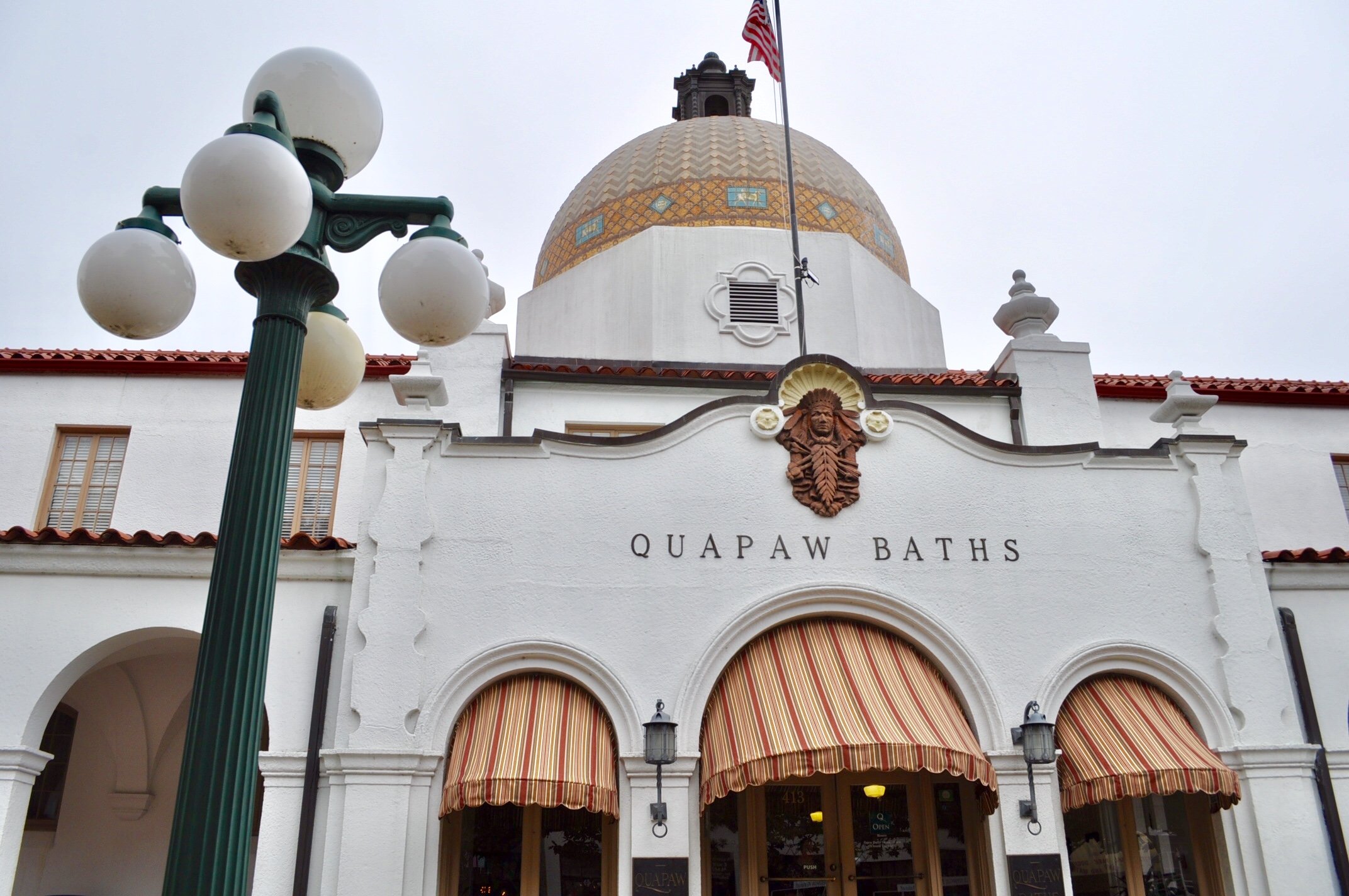
Before the National Parks took over the hot springs of Hot Springs, Arkansas, they were known as a meeting place of peace and healing. Indigenous groups from all over gathered here in peace, laying their weapons down, bringing goods to trade and exchanging immaterial culture. In the time of Al Capone, famous gangsters, including Al, landed here also laying their weapons down to enjoy the healing and relaxing nature of these waters.
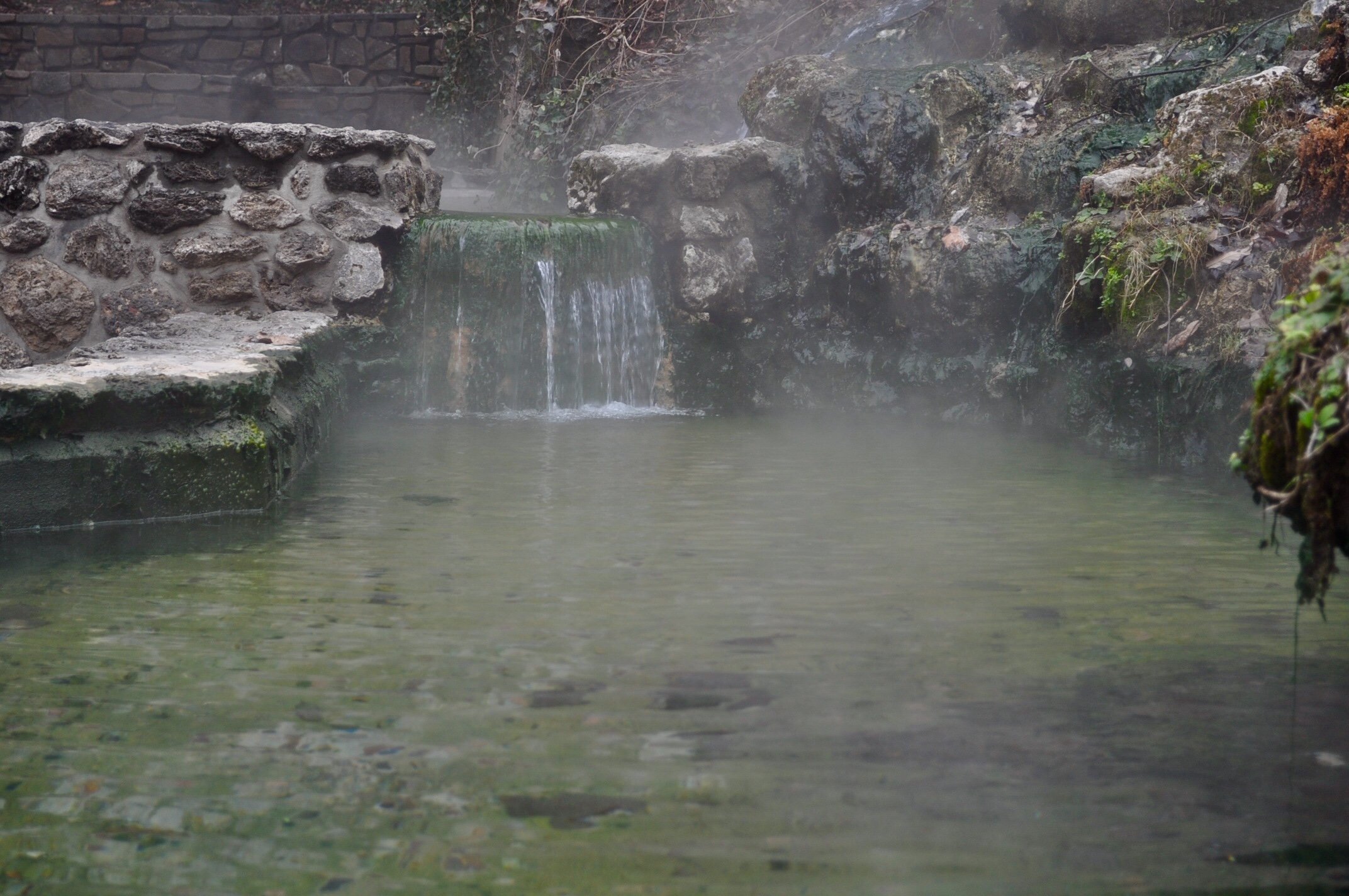
@fishyculture mentioned a friend of hers getting healed in the water 😉, read on to hear the story of Ini dipping his feet in the water.
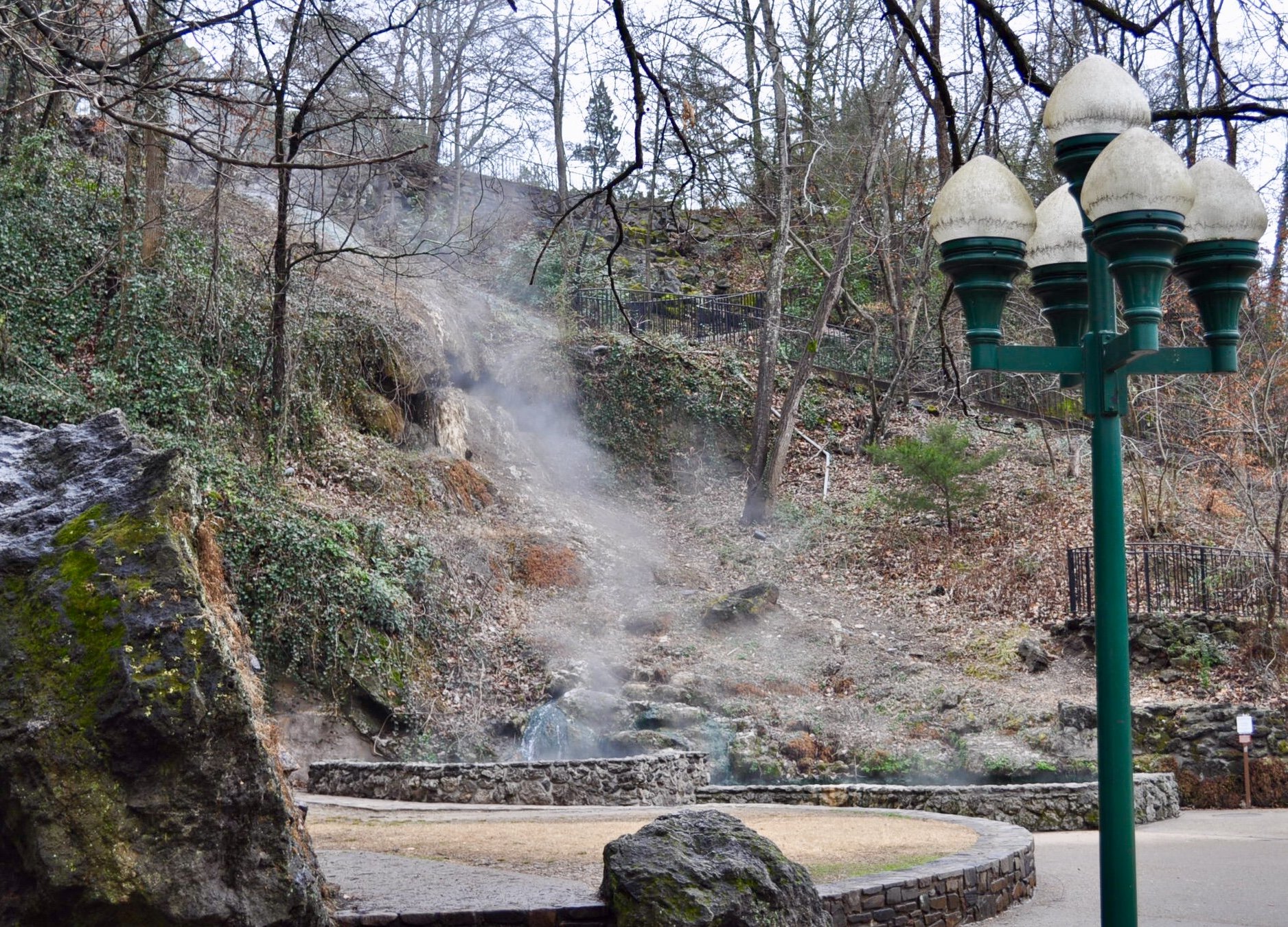
We walked through the town and National Park today, much to our delight. We were overjoyed to see Hot Springs steaming from the Park to downtown and spigots spewing fresh cold water for residents and visitors to enjoy.
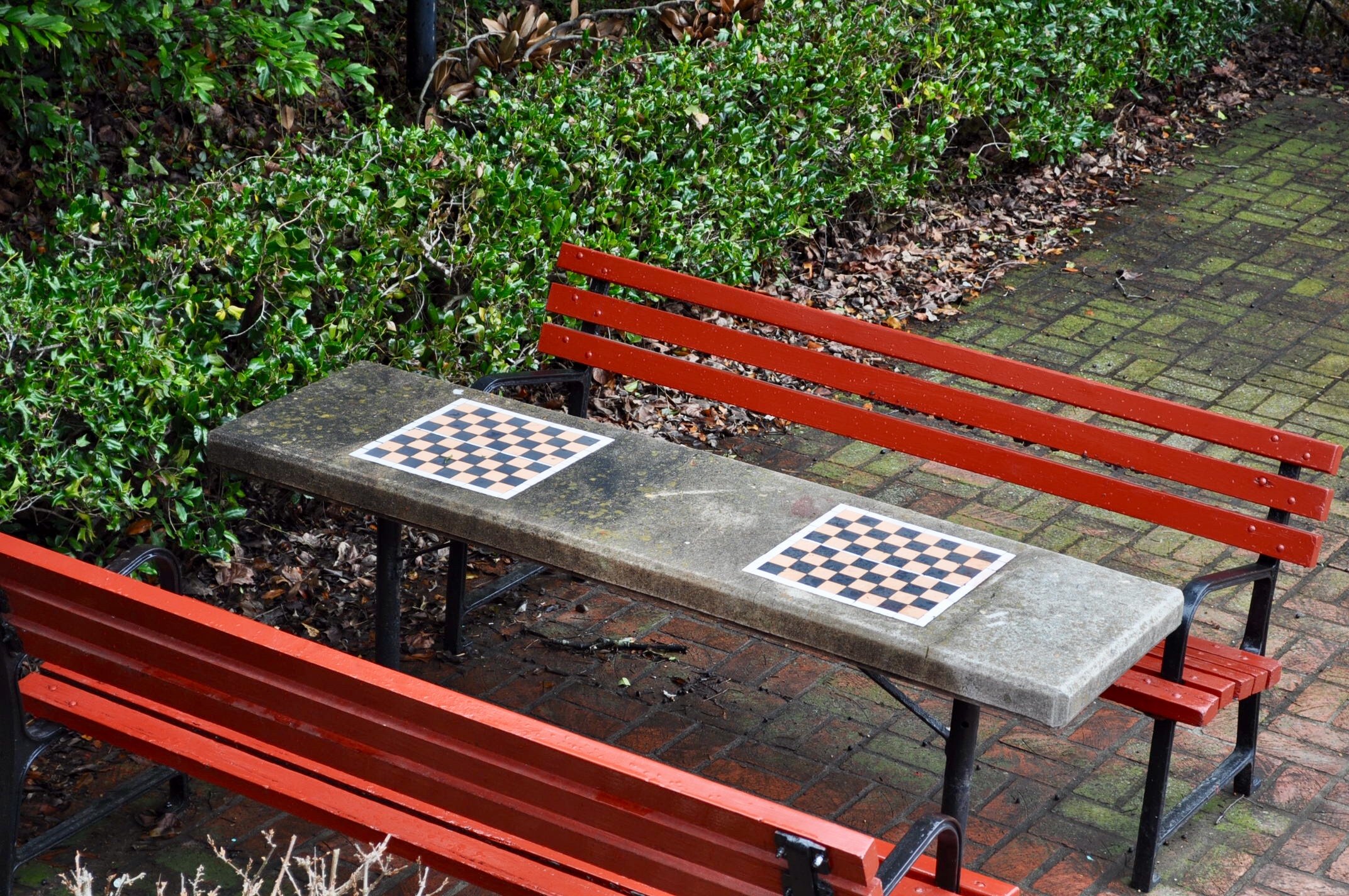
As many of you know, we came to this gathering place in search of Yaupon Holly, but that is not all that we found. Hot and cold spring waters flow abundantly in this town. Truly a convergence of many earthen wonders.
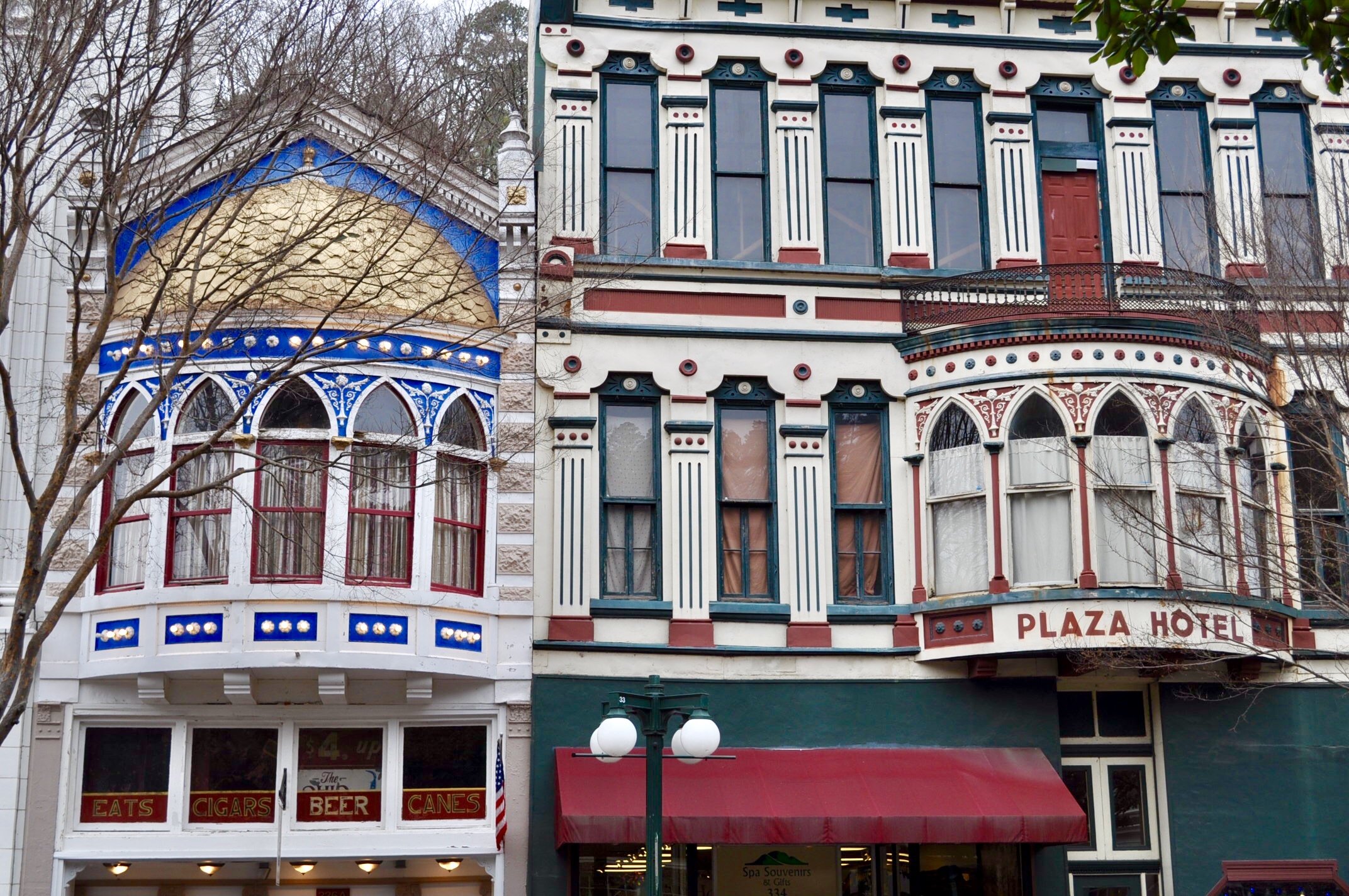
Beautiful stone architecture highlights the natural resources and a sweet series of trails through the National Park in the middle of the city make Hot Springs, Arkansas a unique destination.
There’s a certain charm to this city and we enjoyed walking the streets, indulging in pure spring water and experiencing the forest. Yes, the National Park is within city limits which seems odd, but makes for a much more pleasant city.
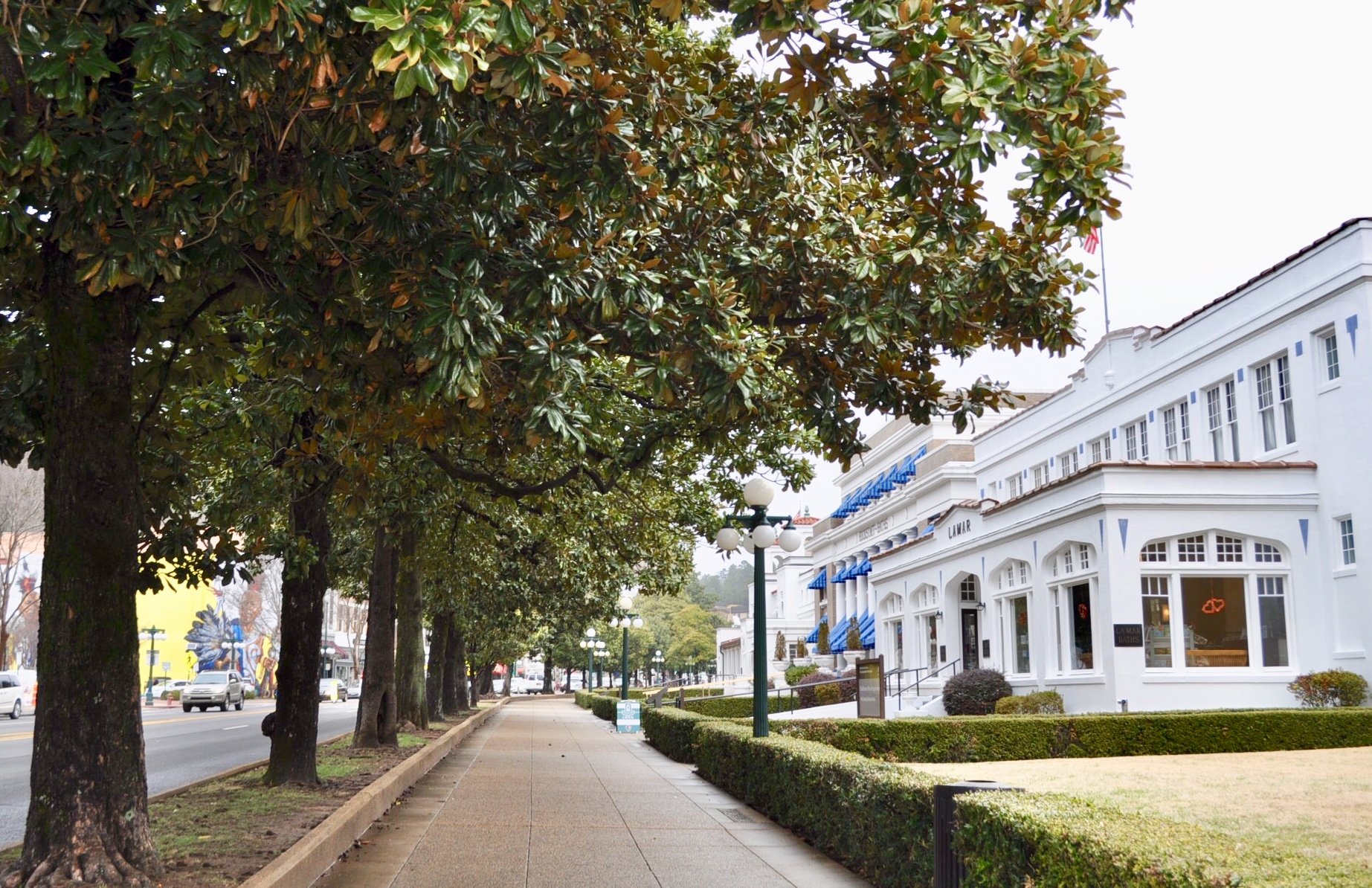
The story we read was that folks coming for healing didn’t want to sit out in the forest, so there are no more wild spring one can access. Now the National Park Service controls and regulates use of these healing waters. Unfortunately you now have to pay to soak in the hot water.
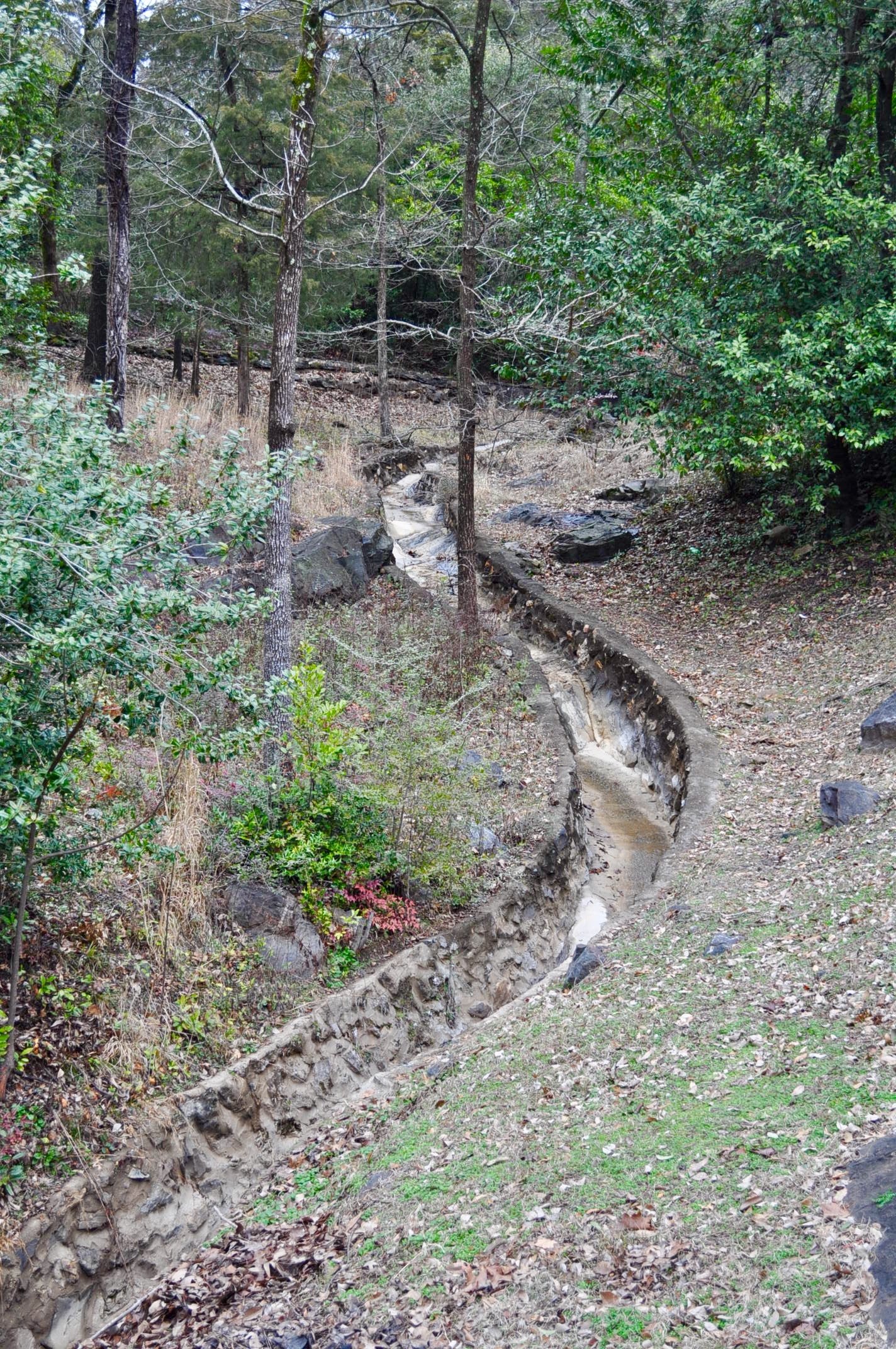
(The channel used to get water out of the mountain.)
Bathhouse Row
The main drag consists of Bathhouse Row, a collection of unique and beautifully crafted buildings. Hot Springs is known for its bath houses, a culture which began in the late 1800s. The buildings channeled thermal waters from the mountains into buildings designed after European spas of that era.
People came from far and wide to soak in the hot healing waters to cure everything from skin conditions to arthritis. The tradition continues today, although it’s unfortunate there are no wild Springs accessible anymore.
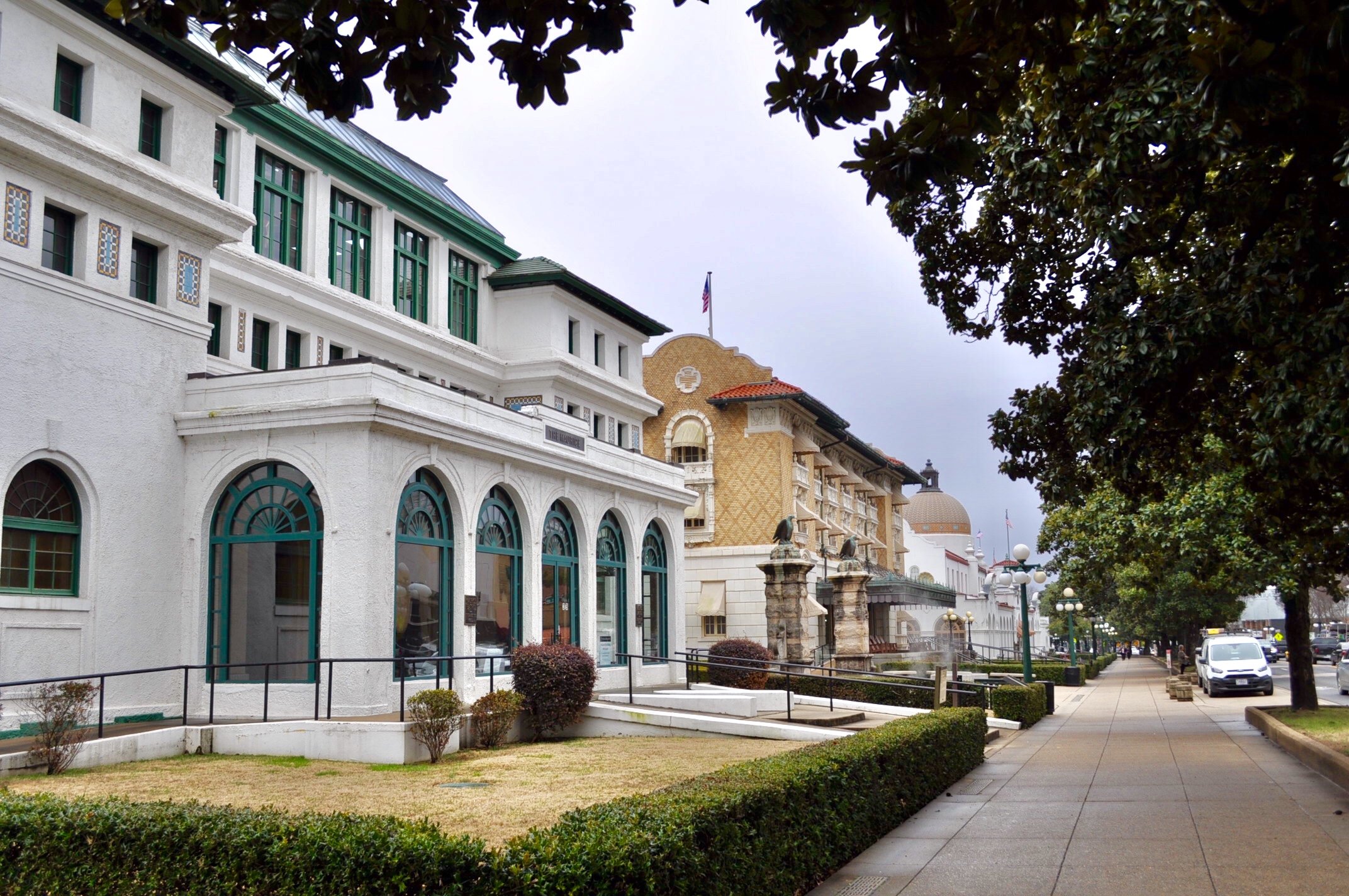
Join Us as we walk the beautiful magnolia lined bathhouse Row. The street carried a certain classy feel to it. Years of distinguished bathing guests may have had something to do with it.
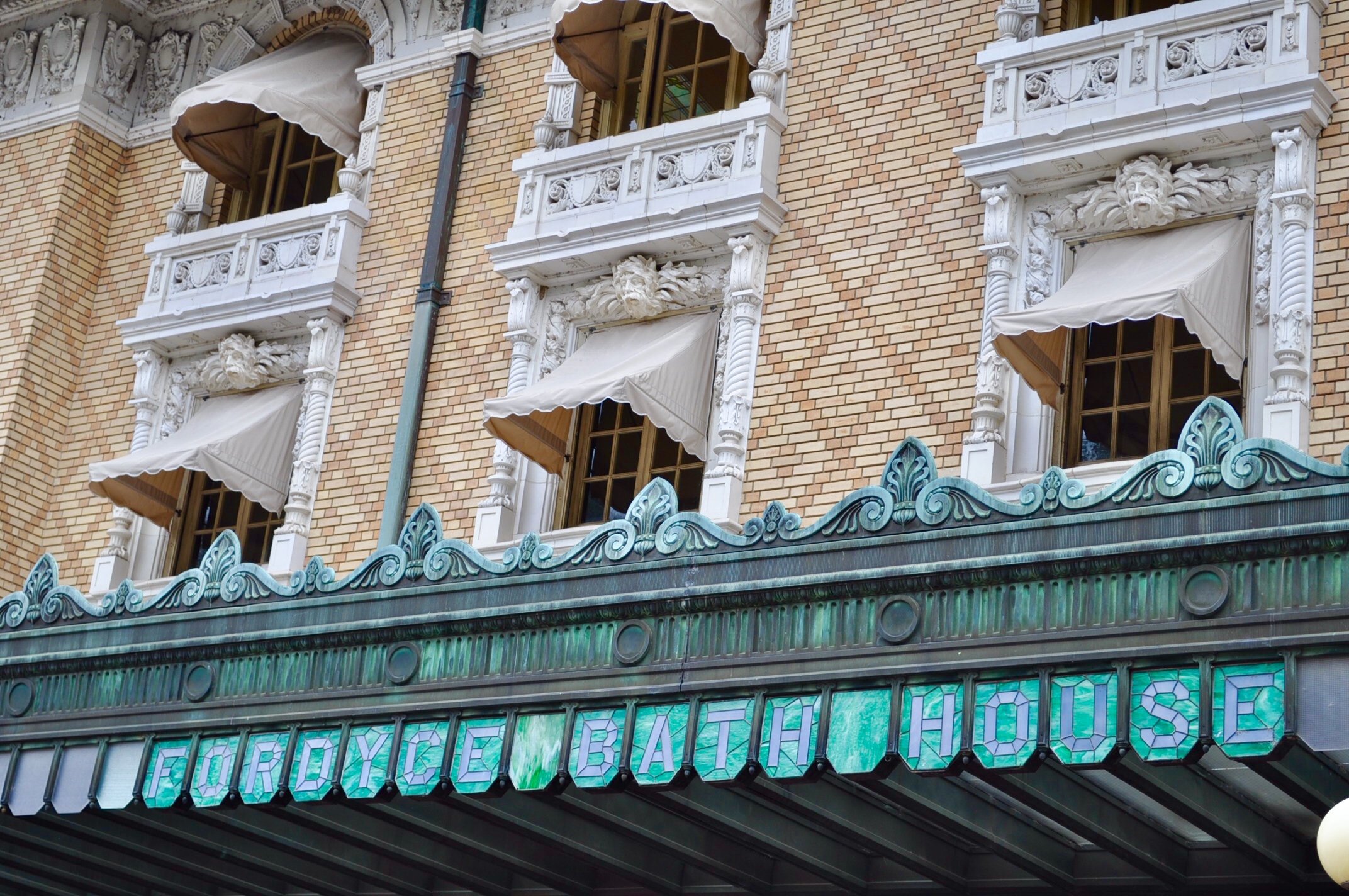
Each bathhouse seems to try outdo their competition by offering “superior” baths. Architecture is the chosen method to impress, although all share a common water source.
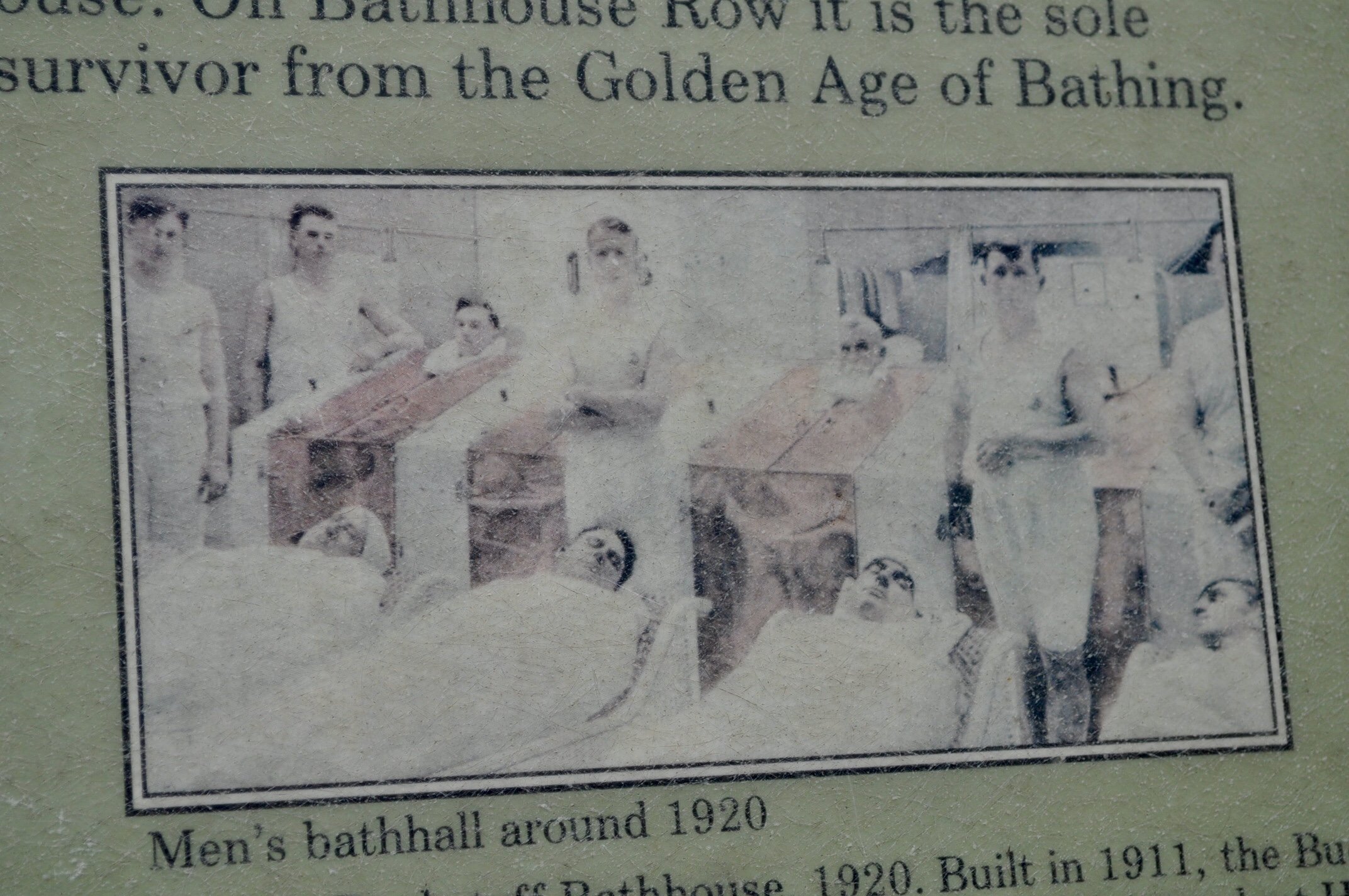
(A image from 1930 bath culture)
Architecture
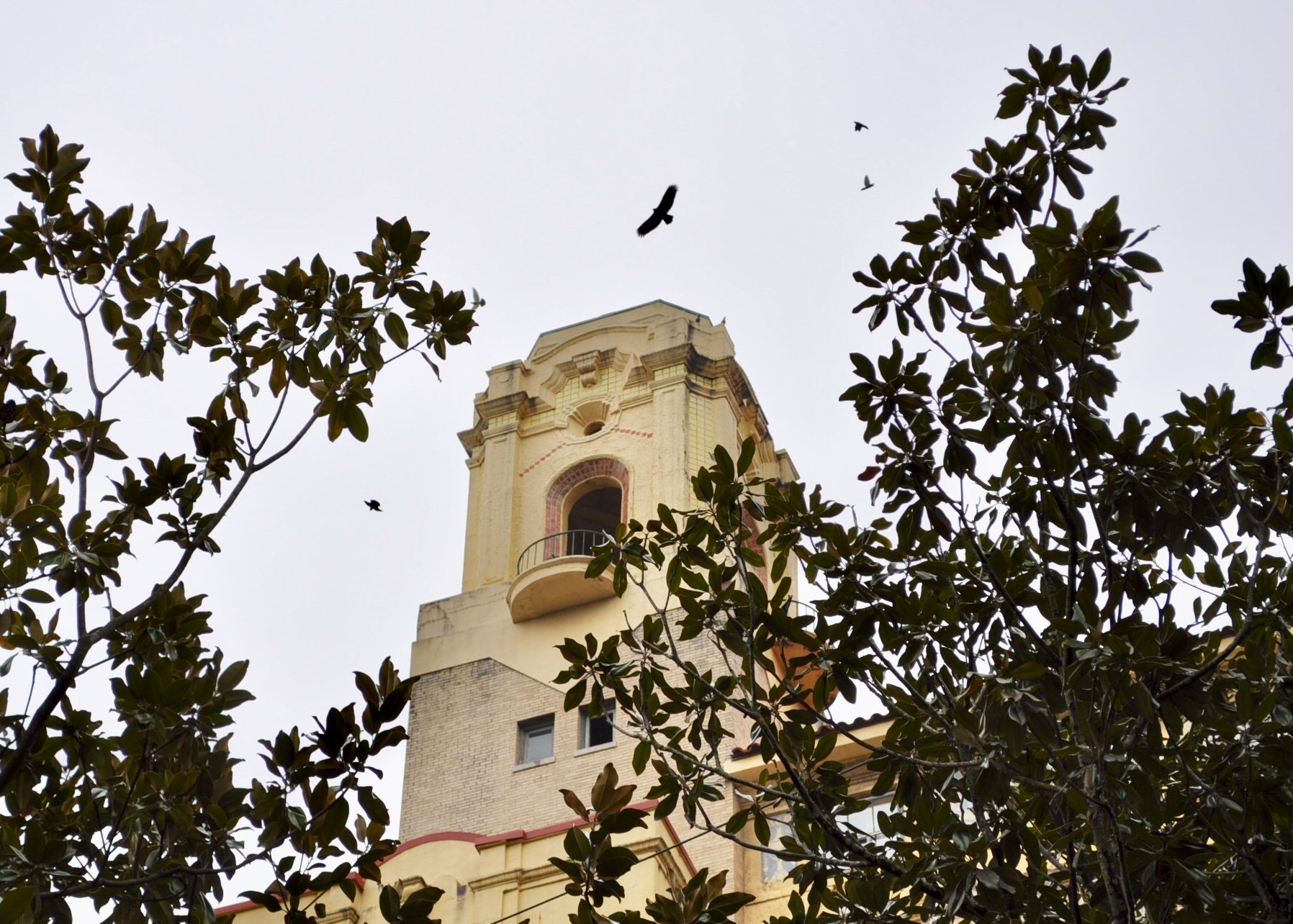
Hot Springs is full of old buildings rich in character. The majority of local stone is tufa (aka travertine) which is mostly calcium carbonate.
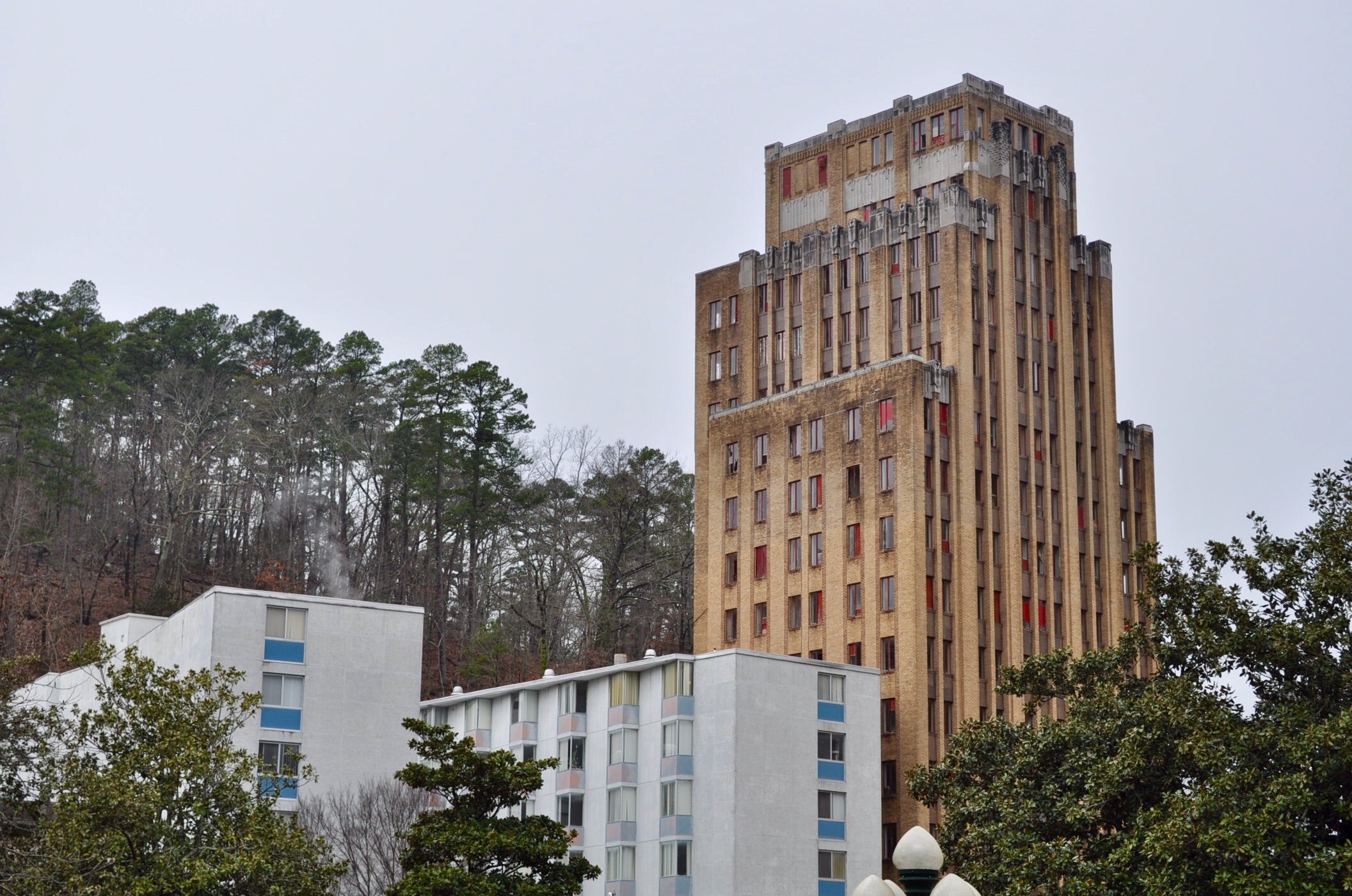
This quality of building is sorely lacking in most North American cities, and it makes for much more pleasant visiting experience if there are old, well built structures to enjoy.
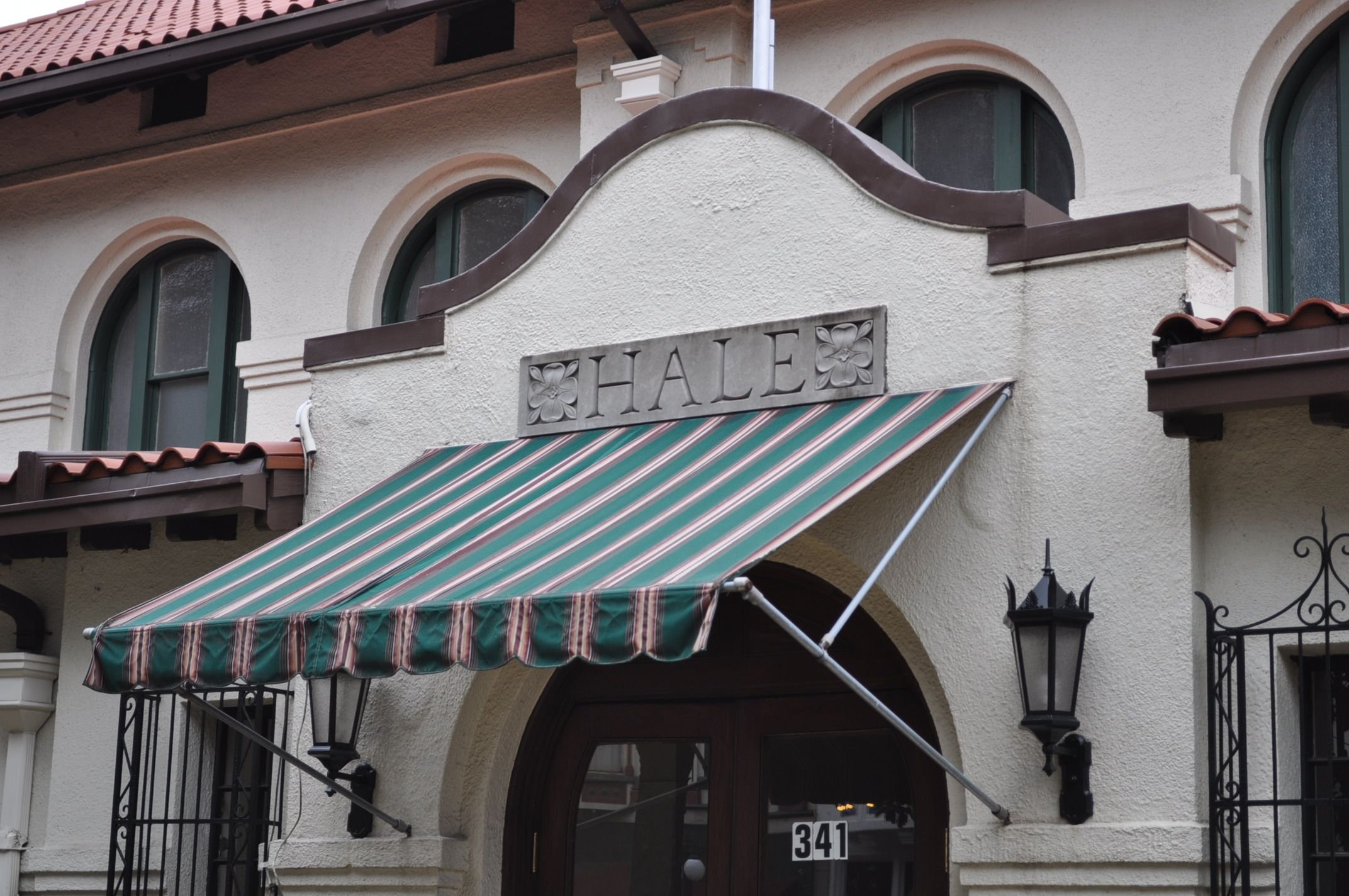

Walking the trail above the city, we enjoyed the vantage from above. We even managed to find very mature male and female Yaupons with a great view of the bathhouses.

(Mature male Yaupon)

(Mature female Yaupon with berries)
Fresh Cold Spring Water
Rarely have I been to a town or city where there is fantastic water available for free. The National Park has created a number of outlets where you can indulge in delicious pure spring water.

Mineral Content
All springs have a unique mineral signature, luckily these had a breakdown for interested parties.
Here is the lowdown on the one Wren is drinking above:

And here is the one from the hot spring fountain:

Pretty interesting!

Hot Spring Foot Bath
The only access to hot spring water was in the park at a lovely cascade. The problem was it was too hot! I tried soaking my feet, but after 15 seconds they really started burning. It felt great, just a shame I couldn’t soak longer.

I left with some pretty lobsterish feet and I’m not sure I was healed!
Thanks for taking a walk with us through down town Hot Springs!

